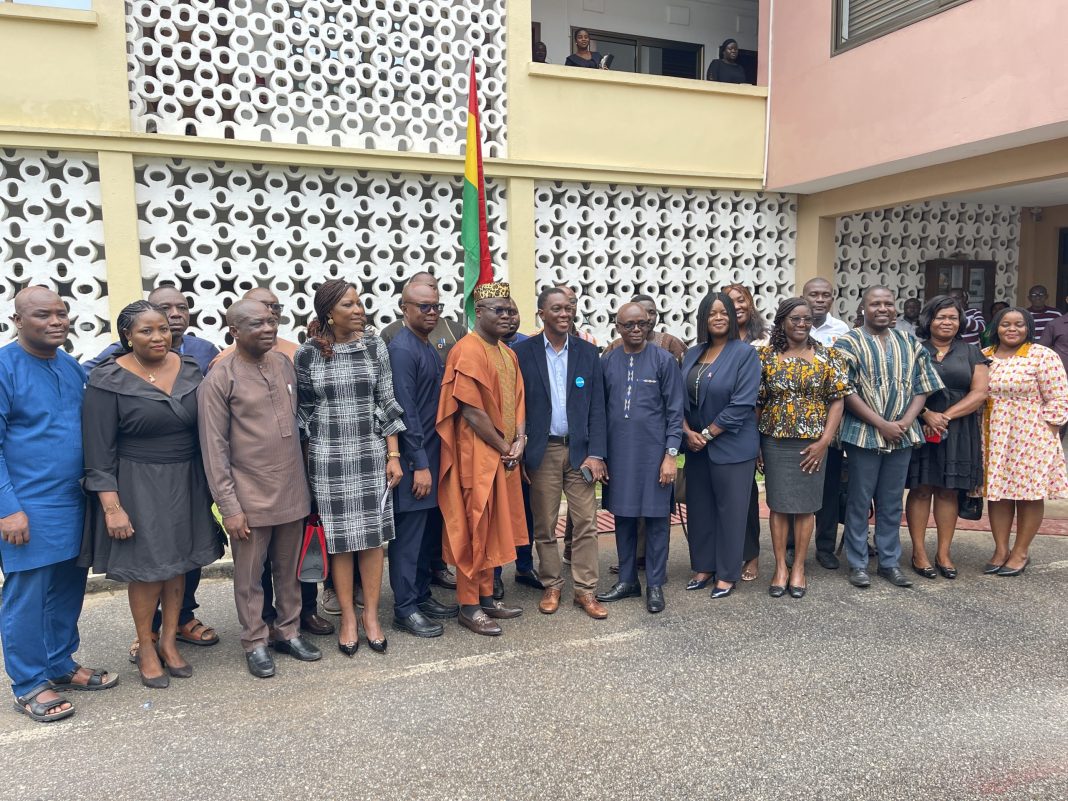By Edward Dankwah
Accra, Oct. 15, GNA – Mr Ahmed Ibrahim, the Minister for Local Government, Chieftaincy and Religious, has called on all persons to see handwashing not just as a health measure, but as a critical investment in national development, social equity, and moral responsibility.
He said handwashing went beyond preventing disease but a foundation to build a resilient, productive, and inclusive society.
The Minister was speaking at the 2025 commemoration of Global Handwashing Day, organised by the Ministry, in collaboration with the Ministry of Works, Housing and Water Resources.
The event, which also saw the reading and signing of the National Handwashing Hero Pledge, was on the global theme: “Be a Handwashing Hero.”
Mr Ibrahim said when a market woman provided soap at her stall, or a child reminded peers to wash their hands before eating, they were not performing small tasks, but heroic acts that save lives and uphold community health.
According to the World Health Organization, handwashing with soap at critical times before eating, after using the toilet, and after handling waste could reduce diarrhoeal diseases by up to 47 per cent and respiratory infections by around 23 per cent.
Mr Ibrahim said hand hygiene had far-reaching implications beyond health, contributing directly to the Sustainable Development Goals, particularly those related to health, education, water and sanitation, and climate resilience.
He highlighted the growing role of the media, school health clubs, nurses, teachers, and environmental health officers as hygiene champions in communities.
The Minister stressed that local governments continued to face financial constraints that limited the sustainability of hygiene initiatives, and that the Ministry was advocating for dedicated financing mechanisms for hygiene promotion.
“Our 261 local assemblies are on the frontlines of sanitation and hygiene. When they act boldly, installing handwashing facilities in markets, enforcing hygiene bylaws, and educating the public, they become the real heroes of public health,” he noted.
Mr Ibrahim directed all Metropolitan, Municipal, and District Assemblies to ensure that every market stall and food vendor had a visible handwashing station, calling on schools to make hand hygiene part of daily routines and school health programmes.
He encouraged investment in water-efficient and solar-powered handwashing devices suitable for rural and peri-urban communities, noting that those solutions were vital for building long-term resilience.
He called on all sectors of society to treat handwashing not as an occasional campaign, but as a continuous civic and developmental responsibility.
Mr Harold Esseku, Development Partner Lead, World Bank, said in 2020, when COVID-19 struck, Ghana was one of the few countries worldwide, which had comprehensive policies in different areas dealing with handwashing.
“So, when it comes to the WASH sector, the policies were there, with education; it was a requirement when putting up a school, in the health facilities; the measure had been in place to make sure that they had adequate hand washing facilities,” he added.
Mr Esseku said building on those foundations, and with the recent elevation of hygiene issues to national prominence, he was confident that the momentum would take Ghana to the next level, adding that the impact of handwashing on public health was significant and far-reaching.
“As development partners, we want to assure the Government of Ghana of our continued commitment. In every engagement within the water, sanitation, and hygiene space, we will ensure that handwashing remains an integral and non-negotiable component,” he stressed.
GNA
Edited by Lydia Kukua Asamoah
